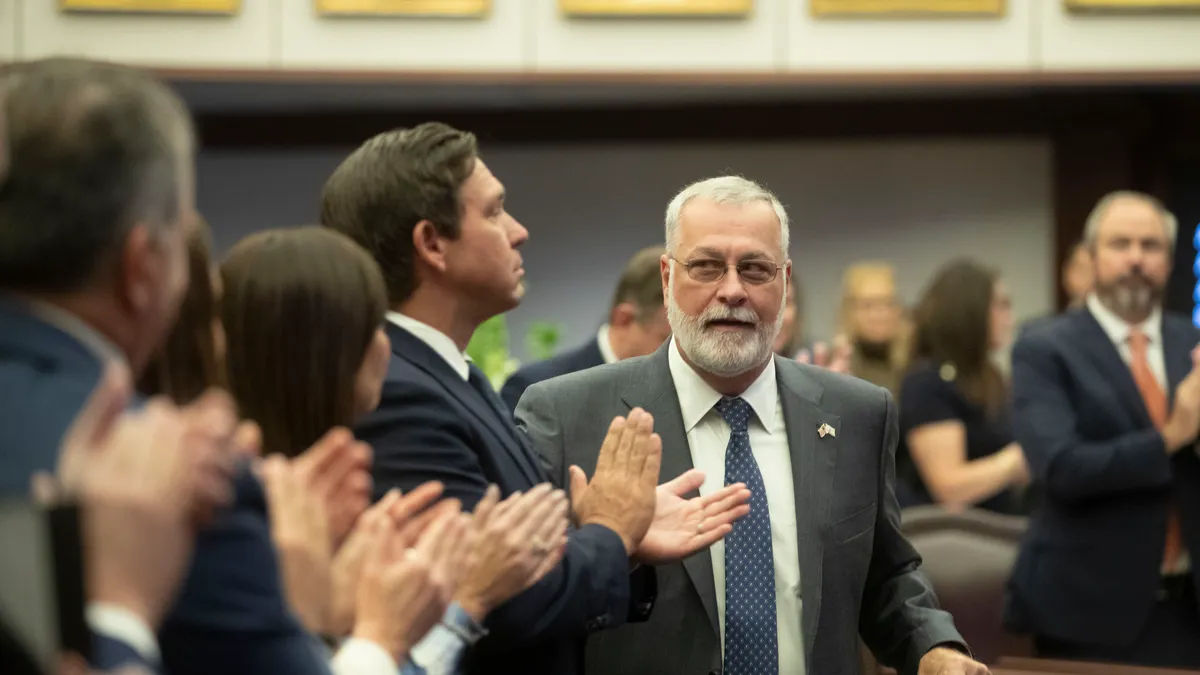
Florida’s Senate Bill 180 suspends local government growth planning for three years.
The bill prohibits local governments from adopting more restrictive changes to their growth plans.
Critics argue the law favors developers and prevents communities from mitigating storm and flood risks.
The law could halt policies designed to protect land and water or prevent urban sprawl.
Early in my career, I had the privilege of serving as the chief environmental regulator for Gov. Bob Graham, Florida’s most consequential leader in creating a system to wisely manage our state’s rapid population growth. Then, as now, thoughtless growth endangered our water supply and natural wonders, threatening citizens with the loss of the pleasures they had anticipated when they moved to our state and imperiling local governments in their ability to provide schools and other infrastructure.
Gov. Graham recognized that a failure to plan carefully would jeopardize all of us and all that we loved about our communities. As he once wrote, “Florida’s economic future and its contemporary commitment to growth management and environmental protection [are] symbiotic.” The bills to carry out these goals passed with strong bipartisan leadership.
Gov. Graham passed away in 2024, more than a year before the Legislature approved and Gov. DeSantis signed Senate Bill 180. While SB 180 includes some positive measures to improve emergency management and disaster recovery, it also slaps a three-year suspension on planning for growth in every county and city in Florida. I can only imagine how mortified Gov. Graham would have been to see this destructive mandate become law.
The positive measures in SB 180 are outweighed by the obvious pro-development policies directed at local governments. Referencing expansive federal disaster declarations for the three hurricanes that struck Florida in 2024, SB 180 prohibits any local government from adopting a “more restrictive or burdensome” change to its growth plan, land development regulations or procedures. However, it doesn’t define that description or limit it to disaster recovery. This means the new law can be used to rule out almost any change to which a developer might object.
Now, communities that have suffered the most are not allowed to implement plans that would mitigate the dangers to their citizens from the next storm if someone (virtually anyone) sues the local government on this undefined basis. The prohibition applies retroactively to Aug. 1, 2024, and extends up to Oct. 1, 2027. It’s already threatening policies that reflect years of study from local planners and engaged citizens.
It wrests control of how and where communities grow from local leaders and their constituents and leaves it to developers, who are not subject to its limits. It automatically resets those limits for another year in any county, and all its municipalities, within 100 miles of the track of any future hurricanes. It invites lawsuits from anyone who objects to a development policy change — even if they aren’t directly affected.
Facing this prohibition, and the risk of exposing their taxpayers to liability from lawsuits, local governments will retreat from their responsibility to respond to increased flooding risks or other evolving hazards with adjustments in their development policies to protect lives and property. Possibly worse, its impacts will extend even further to any policy change that could be seen as hindering development.
This will prevent local leaders from adopting stronger protections for land and water or smarter, fiscally responsible growth policies that insulate taxpayers from the unsustainable infrastructure costs associated with urban sprawl. Developers opposed to pro-environment and anti-sprawl policies in Manatee and Orange counties are already wielding SB 180 to challenge them.
If Florida lawmakers allow SB 180 to stand, and legal challenges fail to stop it, this law will put community planning in a deep freeze. It will stop local leaders and planners from carrying out their essential work of preparing for a safer, more sustainable future in a state that is still absorbing hundreds of new residents a day while facing increasing dangers from flooding and storms. It will undermine the foundation that Gov. Graham worked so hard to build. Our environment, and our economy, will pay the price.
Victoria Tschinkel served as secretary of the Department of Environmental Regulation under Gov. Bob Graham. She is a longtime member of the Board of Directors of 1000 Friends of Florida, a nonprofit, nonpartisan organization dedicated to planning for fiscally and environmentally sustainable communities.
JOIN THE CONVERSATION



